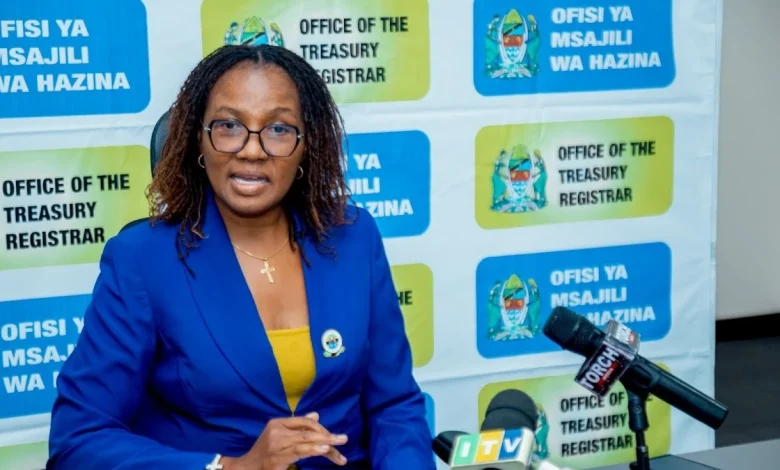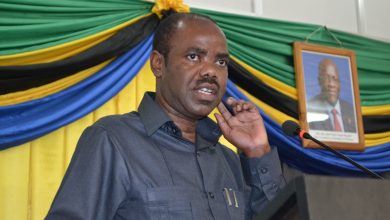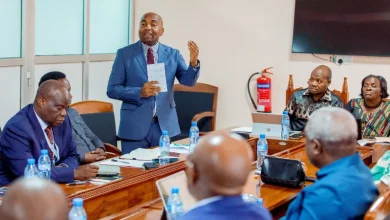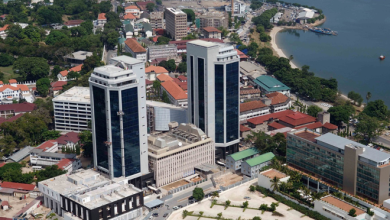CEOs Forum 2025 to host global experts as Tanzania deepens Public Sector reform

ARUSHA: AS the CEOs Forum 2025 be gins today, this year’s edition marks a significant milestone in Tanzania’s public sector reform efforts, introducing a new international dimension aimed at unlocking greater value from public investments.
Set to take place from today, August 23 to 26 in Arusha, the forum will bring together experts from five countries who have been invited to share their experiences and strategies with Board Chairs and Chief Executive Officers from Tanzania’s public institutions.
These foreign experts include representatives from Malaysia, China and Singapore, countries recognised for their success in managing public entities, as well as from the USA and South Africa.
Ms Lightness Mauki, Director of Performance Management, Monitoring and Evaluation for commercial public entities, said recently in Arusha that their participation reflects a growing recognition that Tanzania’s reform journey can benefit from global best practices and peer learning.
“Around the world, there are institutions like ours that manage public assets and oversee state-owned enterprises. We have invited experts from these countries to share what they’re doing, how they’re doing it and how they are generating greater value from their investments,” she said.
This international exchange is not a one-off, it’s part of a broader strategy by the OTR to ensure Tanzania’s institutions are learning, evolving and moving forward in step with global trends.
The goal is simple: to make sure public institutions are not just surviving, but thriving.
This signals an important shift from insular reform efforts to a more comparative and adaptive model one in which Tanzanian institutions are not only benchmarking against global standards but also engaging with proven solutions that have delivered measurable impact elsewhere.
Building partnerships beyond borders
With the theme, “Sustainable Business Partnerships in a Globally Competitive Environment, The Role of Public Enterprises,” the 2025 Forum focuses on strategic collaboration, not just between local stakeholders, but also across borders.
The presence of international experts is expected to bring valuable insight into how other countries are maximising returns from public enterprises through smarter investment strategies and performance management.
This input is particularly timely, as Tanzania continues to refine its own approach to state enterprise oversight and capital efficiency.
Participants will also hear about the kinds of governance structures and oversight mechanisms that have been successful in creating more accountable, transparent and agile institutions abroad.
This offers a unique opportunity for Tanzanian leaders to reflect on the adaptability of these models in the local context, especially in areas where public enterprises face operational bottlenecks, fiscal inefficiencies, or policy uncertainty.
Additionally, the forum will explore how innovation and digital tools are being integrated into public services in other parts of the world, not just to improve efficiency, but to drive long-term competitiveness in a fast-changing global economy.
The ability of public institutions to absorb technology and data-driven approaches is fast becoming a key differentiator between stagnant bureaucracies and reform-driven systems.
This cross-border collaboration aligns with Tanzania’s Dira 2050 vision, which aims to elevate the country to uppermiddle-income status by midcentury.
Achieving that vision will require more than domestic reforms, it will demand lessons learned from global peers who’ve faced and overcome similar challenges. The forum, in this context, acts as a critical interface between aspiration and execution, between vision and operational reality.
Reform with results
Since its inception three years back, the CEOs Forum has grown into a central pillar of public sector reform in Tanzania.
With over 700 Board Chairs and CEOs expected this year, the scale of the event speaks to its increasing importance not only as a consultative platform but also as a national accountability mechanism.
Yet, what sets this year apart is the shift from internal discussion to international benchmarking. This reflects a deeper understanding that transformative reform requires comparative learning and external calibration, not just internal ambition.
“We are doing all of this to make sure our institutions are progressing,” said Ms Lightness Mauki, Director of Performance Management, Monitoring and Evaluation for commercial public entities.
“The time for incremental change is over. We need bold ideas, new partnerships and results that speak for themselves.”
Her statement underscores a growing institutional awareness that marginal gains are no longer sufficient in a global economy that rewards agility, transparency and innovation.
Performance will increasingly be judged not by compliance, but by impact and forums like this offer the space to define what that impact should look like.
The participation of development partners, media and the private sector further reinforces that reform is not a siloed effort, it’s a shared responsibility.
It also signals the government’s willingness to invite scrutiny, dialogue and collaboration from actors outside the public sector a key ingredient for building a credible, futureready public service.
Eyes on Arusha
As Arusha prepares to host this landmark event, the stakes are high. The forum is expected to generate not just conversation, but actionable outcomes that will strengthen systems, enhance transparency and drive innovation in public service delivery.
ALSO READ: CEOs Forum 2025: A turning point for Tanzania’s public sector reform
For Tanzania, the message is clear: public sector reform is no longer optional, it is essential. And it must be informed by both local realities and global insights.
This year’s forum, therefore, is not just an event it is a strategic moment.
Whether it leads to meaningful reform will depend on how well the ideas exchanged are translated into systems, the systems into practice and the practice into results that move the nation closer to the ambitions of Dira 2050.





